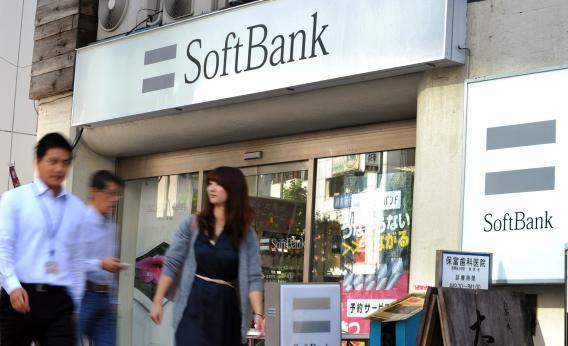A week ago, Sprint looked more or less dead in the water. America’s No. 3 mobile operator lagged far behind AT&T and Verizon in customers, had no appealing exclusive phones, and had built out a much less extensive LTE network than its competitors. The clear risk is that the lack of LTE coverage will prevent Sprint from adding customers, while the relative paucity of customers will prevent Sprint from obtaining the cash flow it needs to upgrade its network. Meanwhile, T-Mobile and Metro PCS are merging to create a low end juggernaut.
Then in stepped Softbank, a Japanese mobile operator with an offer to basically purchase Sprint. Why? After all, as Deutsche Telekom discovered with its ill-fated investment in T-Mobile it’s extremely difficult to generate meaningful trans-continental synergies in a business as place-bound as mobile phone network operations.
Roben Farzad at BusinessWeek has what I think is the best explanation. Softbank had the money and the CEO is an egomaniac:
“I’m a man and I think every man wants to be No. 1.”
—Masayoshi Son, Japan’s second-richest man, on his wireless conglomerate Softbank’s $20.1 billion deal(PDF) to acquire 70 percent of Sprint Nextel, the No. 3 U.S. wireless carrier.
In at least one ego-boosting respect, the deal is already tops: It would be the biggest external acquisition by a Japanese company in at least 12 years, according to Bloomberg data. As for why Softbank (9984:JP) would want to buy Sprint (S), currency, capital-infusion caper, and chutzpah (Japanese for audacity) sum it up well.
For starters, the strong Japanese yen now buys beaucoup in dollar-denominated assets. A little over five years ago, the yen was trading at 123 to the dollar. It now takes just under 79 of them to buy a buck. Japanese companies have been snapping up assets abroad at a record clip; they have already spent more than $65 billion this year, according to the Wall Street Journal, citing figures from Dealogic.
Superficially merging Japan’s No. 3 mobile company with America’s No. 3 mobile company is just a merger of losers, and Softbank’s share price fell 20 percent on Friday when the deal was announced. But the combined operation is a bigger company than Japan’s No. 1 mobile operator, so in a sense Son now runs the biggest wireless company in Japan. And good for him.
The problem from a business viewpoint, however, is that these kind of infrastructure markets tend toward monopoly. The first guy to build a nationwide LTE network incurs huge expenses but in return gets 100 percent of the LTE market and gets to charge monopolist prices for it. The second guy to build a nationwide LTE network incurs basically identical expenses, but in return gets only 50 percent of the market and lower prices. The third mover is, again, incurring the same expenses as the first guy but for an even smaller share of the market at even more competitive prices. Consequently, the outlook for third and fourth movers in these kind of markets tends to be poor and it’s difficult to raise the required funds. That said, from a consumer viewpoint the best possible outcome for the American people is for a Japanese company to take steady profits earned in Japan and pour them into a risky venture to build up a third strong LTE network. So I’m excited to see this happening, even though I think it’ll almost certainly fail.
